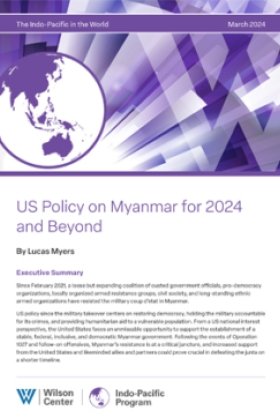The New South Africa: Reflections on Politics in the Private Sector
Tokyo Sexwale, Chairman, BCF; Ambassador Howard Wolpe, Woodrow Wilson Center Public Policy Scholar
Overview
Mr. Sexwale began by stating the declaration of the World Summit on Sustainable Development, convened in August 2002 in Johannesburg, South Africa, as the endeavor to create a humane world. He went on to state that the next phase after the summit focuses on implementation programs to fulfill the affirmed goals. Relating South Africa to the summit, Sexwale stated that the country's challenge is to create an economic democracy to couple with its already firmly rooted political democracy. Sexwale went on to state that economic democracy would be fostered in South Africa through the development of the country's natural resources and the strengthening of civil society.
In addition to carrying out its own plans for development, Sexwale stated that South Africa also has a responsibility to the continent to provide leadership and serve as a model of progressive political and economic strides. He noted that certain African rulers could not continue to rule their countries as their own "personal fiefdoms." Sexwale also stated, however, that South Africa is like a "new born kid" as a democratic country only eight years old after 300 years of strife. He stated that while the 3% growth rate serves as positive tone for the South African economy, it must be closer to 6%. According to Sexwale, the New Economic Partnership for Africa's Development, NEPAD, which endeavors to eradicate African poverty, as well as create sustainable development, and participate in global economy, is in need of investors.
Though aware of criticisms within Africa that NEPAD launched without sufficient consultation and the accusation it is a plan coming from "outside Africa", Sexwale stated that he is a supporter of the initiative and believes that the criticisms are unwarranted. Sexwale then outlined the lengthy development process and its emergence as an offspring of the Millennium Africa Plan and the Omega Plan of Senegal as a response to critics. He also stated that NEPAD is equipped with a "peer review mechanism" requiring African leaders to monitor their colleagues' behavior, no longer allowing sovereignty to serve as a veil for any action. He further stated that before NEPAD will offer assistance to any country it must demonstrate democracy, transparency of resource allocation, and that leaders must agree to consult with civil society regarding development.
In addition to these comments, Sexwale also asserted the importance of microlending; the fostering of entrepreneurship; addressed the economic impact of AIDS; and the continual electoral dominance of the ANC in South Africa.
Drafted by Shaina Jones, Intern for Howard Wolpe
Hosted By

Africa Program
The Africa Program works to address the most critical issues facing Africa and US-Africa relations, build mutually beneficial US-Africa relations, and enhance knowledge and understanding about Africa in the United States. The Program achieves its mission through in-depth research and analyses, public discussion, working groups, and briefings that bring together policymakers, practitioners, and subject matter experts to analyze and offer practical options for tackling key challenges in Africa and in US-Africa relations. Read more
Thank you for your interest in this event. Please send any feedback or questions to our Events staff.









